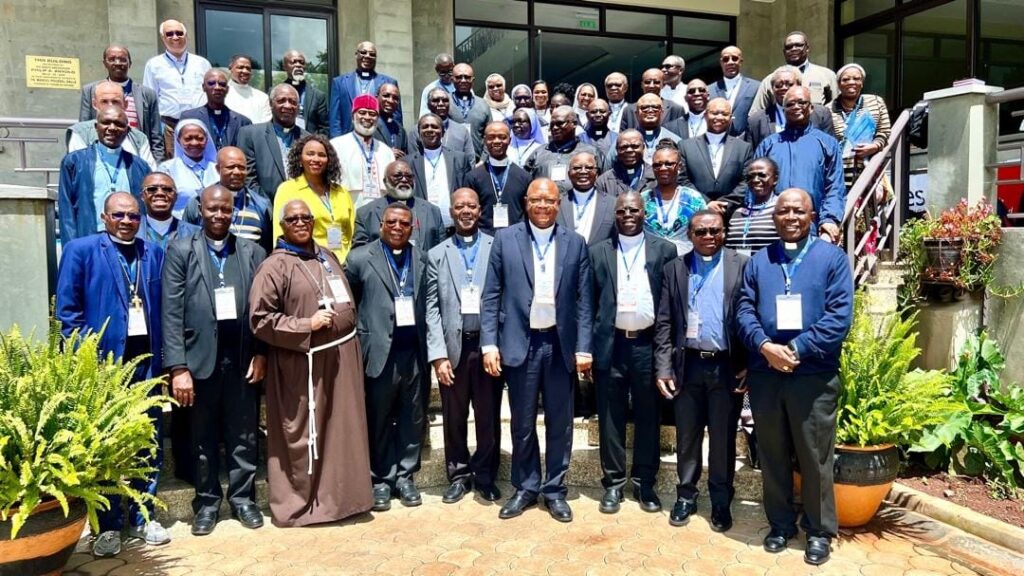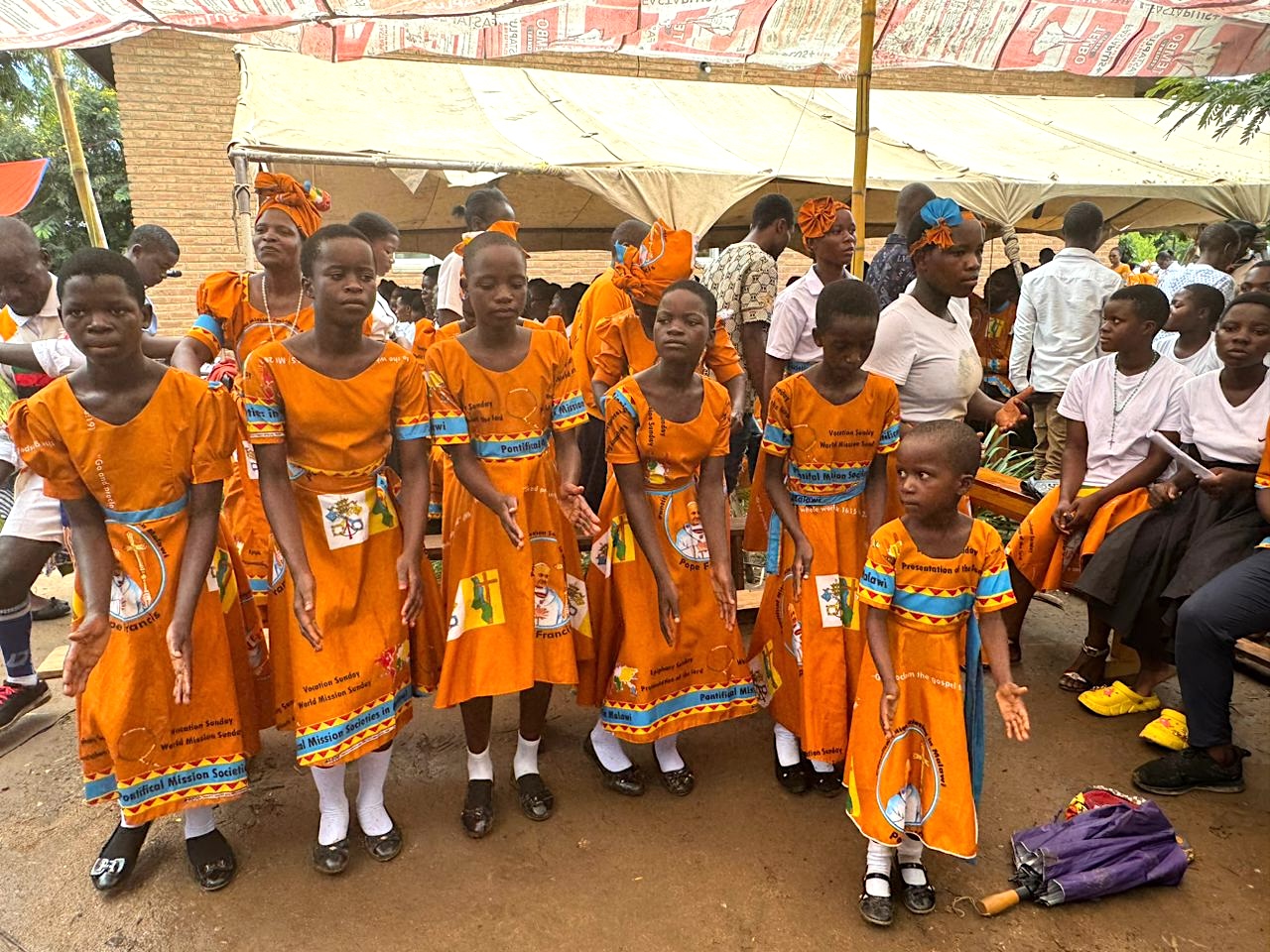SECAM: Bishops Are Pillars In The Functioning of a Synodal Church

Africa Delegates for the synod
Sr. Jecinter Antoinette Okoth, FSSA
As the Catholic Church continues with the discernment process in the synodal journey, a Church leader has stressed that the office of the Episcopate is significant in the realization of a synodal Church.
In his opening remarks during a webinar session on Thursday, April 18, Bishop Emmanuel Adetoyese Badejo of Oyo Diocese in Nigeria, acknowledges that the pastoral authority of the Bishops is necessary for a synodal Church since the “Bishops’ charism of discernment calls them to be authentic guardians, interpreters, and witnesses to the faith of the Church.”
The Prelate who doubles as the President of the Pan African Committee for Social Communications (CEPACS) highlights that Synod on Synodality guides the people of God to a path “where every voice is heard, every heart is considered, and every hand is held, firmly, in the love of Christ.”
The webinar organized by the Association of Member Episcopal Conferences in Eastern Africa (AMECEA) in collaboration with the Association of Consecrated Women in Eastern and Central Africa (ACWECA) the Pan-African Committee for Communication (CEPACS), and in partnership with the African Synodality Initiative (ASI) was held under the theme: ‘Ministry of the Bishop in the Mission of the Church in Africa,’ to reinforce how the office of the Episcopate can be more synodal to strengthen inclusivity, participation, and mission in the ecclesial body of the Church.
According to Bishop Badejo, in the first session of the XVI Ordinary General Assembly of the Synod on Synodality, which was held in October 2023, delegates shared in the Synthesis Report which resulted from their discussion that bishops who are “Fathers” in their capacity, have “an indispensable role in vivifying and animating the synodal process in the local Church, promoting the mutuality between “all, some and one,” (SR, 12).
He references a case in point in Africa on the synodal participation of the people of God saying, “Our collaboration as the Pan Africa Episcopal Committee for Social Communication (CEPACS), the Association of Member Episcopal Conferences of Eastern Africa (AMECEA), the Africa Synodal Initiative (ASI), and the Association of Consecrated Women in Eastern and Central Africa (ACWECA), is already a testimony of our commitment to journey together as Church – Family of God in Africa.”
 He prays that the Holy Spirit inspires the people of God in the continent, “to carry forward the torch of faith, towards a future that resonates with the voice and vision of all the baptized in every corner of Africa and beyond.”
He prays that the Holy Spirit inspires the people of God in the continent, “to carry forward the torch of faith, towards a future that resonates with the voice and vision of all the baptized in every corner of Africa and beyond.”
On his part addressing the over 100 participants from across the globe during the Thursday webinar session, the AMECEA Secretary General, Very Rev. Anthony Makunde reminded the people that the ministry of bishops cuts across the three Synod themes: communion, participation, and mission.
He acknowledged that the report of the Continental Assembly of the Synod on Synodality held last year did not directly discuss the ministry of the bishop, but in the discussion on the “need for co-responsibility,” there was the implication of the ministry of the bishop.
From the report Fr. Makunde said, “Many expressed the view that decisions in the church are sometimes taken without sufficient dialogue, but synodality requires taking everyone as important and responsible.”
Even though the first synod assembly in Rome last year offered concrete proposals, the cleric who attended the XVI Ordinary General Assembly of the Synod on Synodality as an expert delegate noted, “If these proposals are acted upon, it will help make the episcopal ministry more synodal.”
The AMECEA’s Secretary General concluded saying, “The fruits of this discussion and many others will not only keep the spirit of the Synod alive but also inform the contact persons of the Episcopal Conferences as they prepare their reports and good practices ready to be submitted to the General Secretariat of the Synod by May 15, 2024.”
Besides, through the Episcopal conferences, the feedback for the synthesis report should be submitted in eight pages, and testimonies of two pages, to help in drafting the second Instrumentum laboris (Working Document) that will guide the second phase of the synodal assembly.


